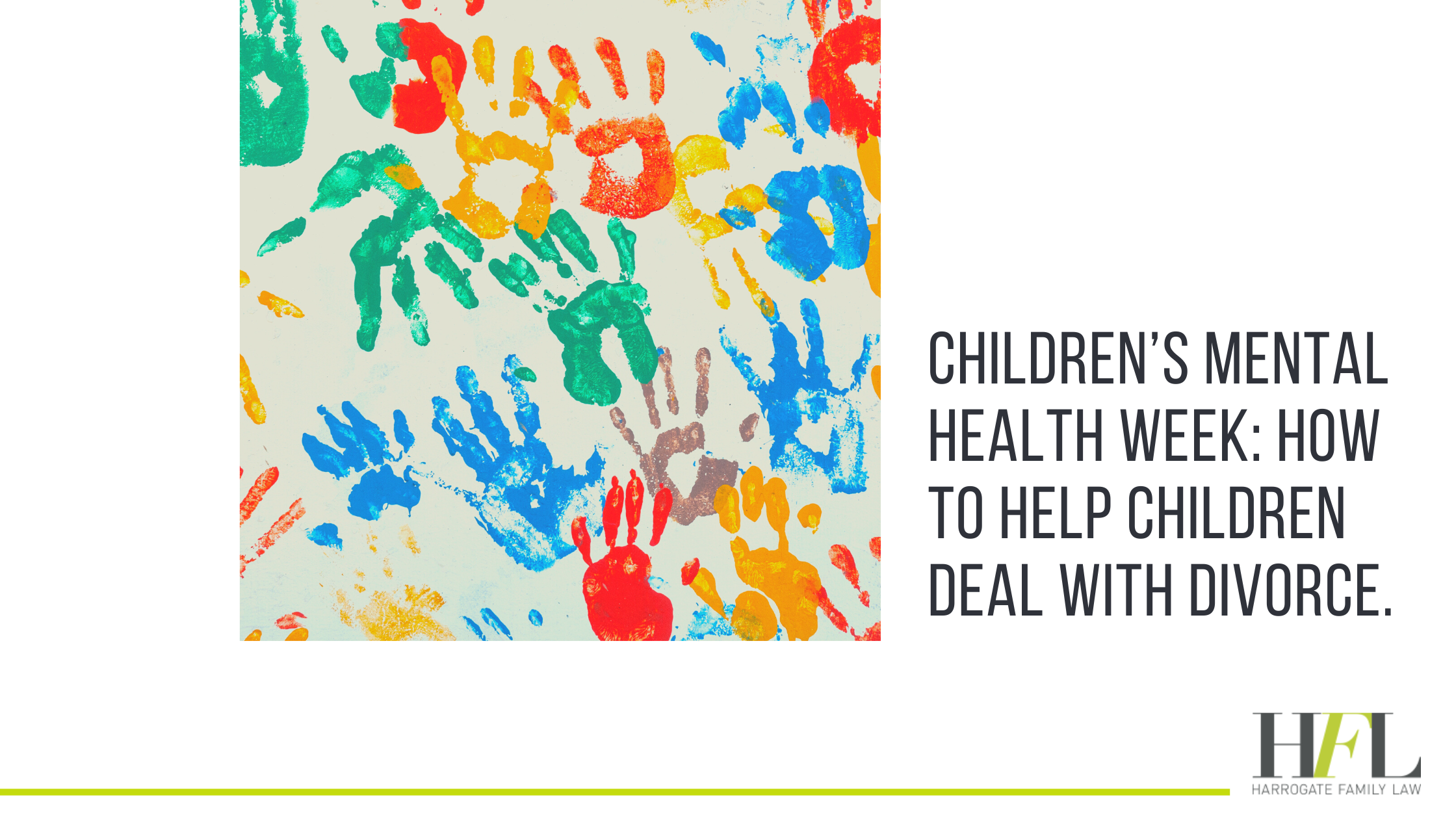Children’s Mental Health Week took place between 6 – 12 February 2023. Whilst this is an incredibly important topic all year around, this week is a great opportunity to really shine a light on how we can make a difference.
The theme this year was ‘Let’s Connect’, focusing on helping children maintain healthy and meaningful relationships. As family lawyers, this feels like the perfect opportunity to talk more on our blog about how to help children deal with divorce, a process that can be traumatic for any child, at any age. So just how do you provide them with the support they need? Let’s take a look.
Keep up routines
As family life inevitably changes during a divorce or separation, sticking to the same routines as far as you can will help to maintain a level of consistency. For example, bedtimes, meal times, and school drop off and pick up times can all help your child feel a sense of normality at a time when their world may feel very uncertain.
Keeping up with the same rules and discipline is also a big part of this. There’s a big temptation to shower your children with gifts, or to relax the rules, but remember that boundaries are also important for stability, and relaxing things too far can very often have the opposite of your desired effect.
Ultimately, minimising disruption by maintaining routines and boundaries will provide a level of security that your children need.
Let them know they can talk about their feelings
Children are very observant of change, and although you may be trying your best to hide what’s going on, they’re likely to notice that things are unsettled.
Again, whilst there’s the temptation to try and make everything ‘better’ and to ensure that your children are ‘happy’, in reality, they need to be able to process how they’re feeling. Explaining that it’s okay to be sad, confused or angry will reassure your child and help them to open up about their feelings. Being open and honest here will also reassure your children that they don’t need to keep their feelings hidden due to fear of upsetting others, or of adding further stress to the situation.
Although it might be easier said than done, staying calm and listening more than you speak is very important. Check in with them regularly about how they’re feeling, as this will provide them with a safe space to confide in you as you navigate any changes together.
Don’t put your child in the middle
When talking to your child about your ex, try to remain as neutral as possible. You don’t want to place them in a situation where they feel they have to choose between you or and your ex spouse or partner. Co-parenting isn’t always easy, and it’s important to do everything you can to make the journey as smooth as possible.
No matter how difficult it may be, avoid arguing with your ex or asking your children questions about them to gain information. Even if you know that this is something your ex is doing when they’re with the children (particularly if narcissism has been a feature of your relationship), it’s important for you to take the higher ground.
At Harrogate Family Law, we’re committed to always putting our clients at the centre of everything we do. With our expert team, you’ll have the support you need at every step of your legal journey. To find out more about putting us in your corner, get in touch today.






